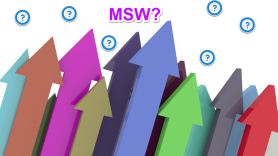
Beware of Technology: It's Dangerous
The Social Work 2010 Congress concluded last month and yielded ten imperatives for the future; one related to technology: “Integrate technologies that serve social work practice and education in an ethical, practical, and responsible manner” (2010 Social Work Congress Voting Results). This is good, yes? Well, yes. And no.
Yes in that it is definitely a necessary task for the future. Actually, I would venture that it’s a necessary task for now, even yesterday.
And no? As I reread the imperative my eyes lingered on phrase at the end of the sentence, the one that read, “in an ethical, practical, and responsible manner.” Well of course it should be implemented this way. But why does that need saying? Wouldn’t we expect all of the professional imperatives to be implemented this way?
So I went back and read the nine other imperatives. None of the other nine qualified the implementation of an imperative with a phrase like this. And the second imperative (related to implementing business and management models) certainly would have been a natural place to do so if specifying the “how” of implementation was to be a consistent part of the imperatives.
So why single out technology? It’s clear that at least some people felt this was necessary to specify. The very presence of the phrase suggests fears that technology will be implemented in unethical, impractical, and irresponsible ways. It is possible that that could happen? Of course it is. And it’s also possible that business and management models could be implemented in unethical, impractical, and irresponsible ways. And it’s possible that most of the other imperatives could be implemented in this fashion as well. Everything we do is subject to the risk that we could behave unethically, impractically, and irresponsibly. Yet it was only in the writing of the technology imperative that this was specified. This simple act conveys the suspicion and fear of technology that some (many?) social workers have. Technology is not seen as neutral, but as something that is dangerous. And those who use technology? Well, clearly they need to be monitored to ensure they don’t behave unethically, impractically, and irresponsibly. Because one couldn’t possibly trust that they would implement technology according to their professional ethics–on their own–without being told to do so.
I’m left wondering how social workers felt about the telephone when it was first invented. Were there fears about how it would destroy face-to-face relationships? Were there those who worried about colleagues implementing it irresponsibly? Unethically? If so, how long did it take before the telephone was accepted as a tool, one that could be used effectively or misused, like any other?
To be clear, I wasn’t at the 2010 Social Work Congress, so I didn’t hear the dialogues that went into crafting the proposed imperatives. The fears may or may not have been articulated. But the inclusion of that phrase suggests that they were lurking there nonetheless. While there are many social workers who have embraced technology as a tool for practice, policy and education, it suggests that there is still a sizable group who is reluctant and fearful.
My fear is that the fear of technology will destroy the social work profession. We’re at critical juncture in time. There is a growing need for human services professionals in the health and behavioral health arena–social workers have been an important part of this workforce to date. However, there are many other professions that can now fill one or more of the roles played by social workers. And there are many ways that people who seek to make a difference in the world now use technology to do just that. Technology, online social network, and the digital world are becoming the ways in which many Americans and people all over the world are seeking information, resources, building communities, and reaching out across the globe. Mobile devices are fast becoming the primary way that people from all walks of life are accessing social networks and other online resources (see this recent NY Times op ed for more on this). Eschewing technology and digital domains–or even moving toward them slowly, with much ambivalence– could well leave us sitting back in the 20th century while the rest of the world moves on.
Photo courtesy of Abulic Monkey







You must be logged in to post a comment.